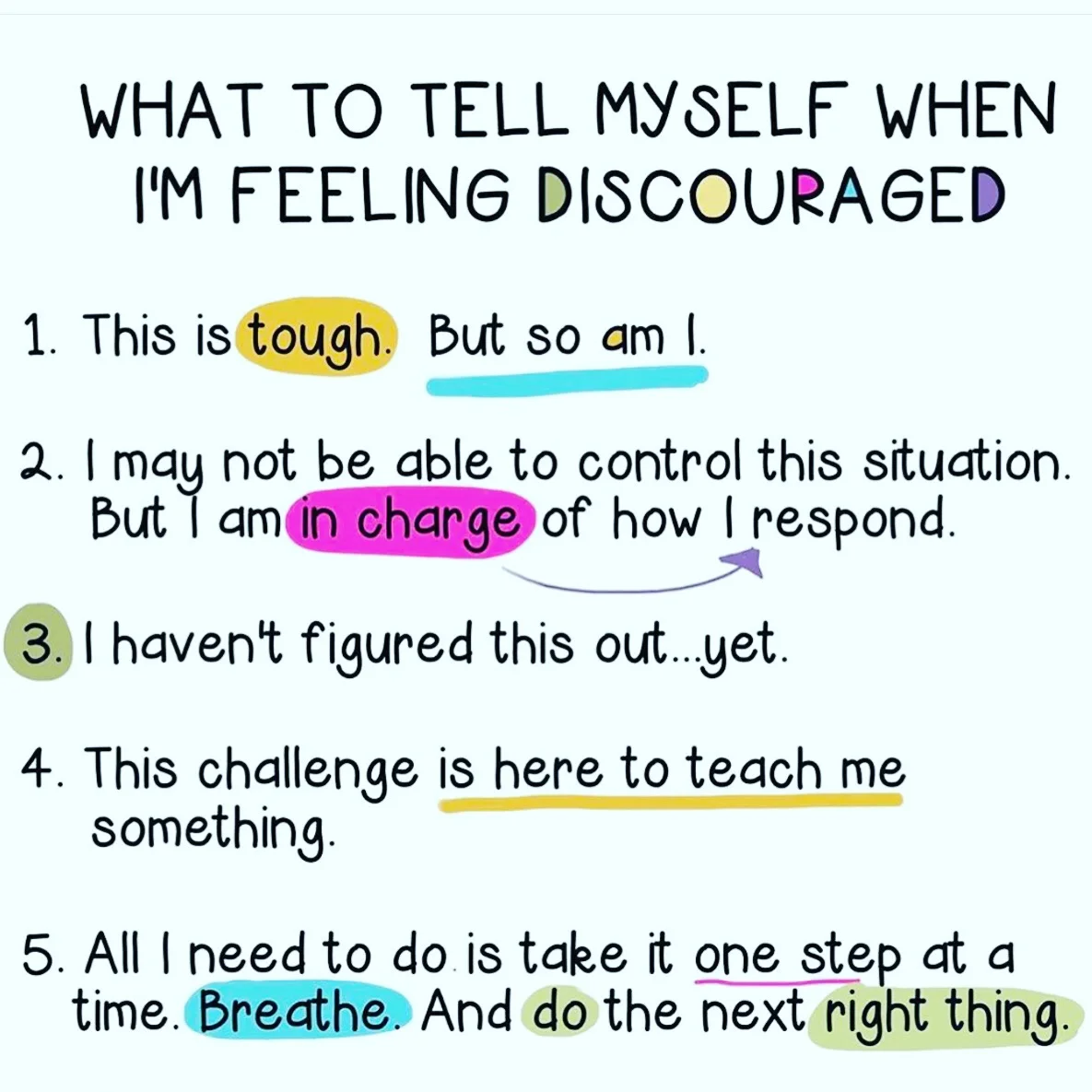Last week I shared the meme shown above on my Woman Worriers Instagram and Facebook pages. It’s titled What I Tell Myself When I’m Discouraged. I liked it because I know how hard I can be on myself when I’m feeling down. It’s easy to forget to be kind to myself when things aren’t going well and I feel discouraged.
When I feel discouraged, the nice things I could say to myself aren’t always the first words that come to me. It’s way to easier to treat myself harshly. I tell myself things that I would never say to someone else.
While I was away on vacation, the meme I shared blew up on my Facebook page. As of today it’s been shared over 800 times. 800 times! It’s my most popular post. I was kind of excited when I saw on my notifications that a post was being shared repeatedly. I’d just dropped a blog post and was hopeful that the content was really touching my followers.
As I looked more closely, I realized that it wasn’t the blog, but the meme that was being shared over and over again.
When Imposter Syndrome Strikes
As I watched the number of “Shares” increase, I talked to my son about it. I was in awe that a meme could generate such a response. I told him how conflicted I felt in that moment about sharing the meme. I was excited that I was getting a lot of engagement about one of my posts, but I also felt like a fraud. I hadn’t created the meme myself; I’d just shared it from someone else’s feed. So, my most popular post that was shared again and again wasn’t even something that had truly come from me.
I work very hard to put together meaningful blog posts and great interviews for my podcast, and I create a lot of really good content. They might get a few shares and likes but none of my original content has ever been shared over 800 times. I realized, ironically, that I was feeling a little discouraged. A meme that I randomly re-shared had become my most popular content.
Reflecting on Social Media Responses
I’ve been home for a week since that conversation with my son. In that time, I’ve made a point to look through the shares and comments about the post. It obviously struck a chord with a wide variety of people. As I read through the comments on my original post and the shared posts, I saw how deeply the meme had touched others.
Most of the comments included the sentiment, “Thanks, I really needed this today!” In that moment I realized that no one cared about the authorship. It didn’t matter who created the meme. People shared and commented on it because the idea that we could be kind and compassionate with ourselves when we feel discouraged felt novel and it was welcomed with joy.
Why Aren’t We Kinder To Ourselves?
If we can be kind and compassionate towards others when they’re struggling, why is it so hard to say those same things to ourselves? Logically you’d think we’d be nice to ourselves. After all, we are our own constant companions. Shouldn’t we want to have a healthy healing relationship with Self?
But, in my experience we’re harder on ourselves than we would ever be with anyone else. I know I was actively questioning the value of my content when this meme started gaining popularity. Some of the things I was telling myself were not very kind.
We somehow believe that we don’t deserve kindness. We think that saying compassionate words to ourselves will somehow make us weak, or non-productive or lazy. But the harmful, shaming things we say to ourselves aren’t motivating us; they’re just making us feel bad.
Share A Little Self-Compassion
We can learn to be more self-compassionate and kinder to ourselves, even when things aren’t going our way and we feel discouraged. It takes some practice, and it isn’t always easy, especially if we had very critical caregivers.
I still have some discomfort and worry about the popularity of a post that I shared but did not create. And I’d like to give credit where credit is due! I’m also recognizing, experiencing and feeling the joy of sharing the idea that we can, and should, offer ourselves kind and compassionate words when we feel discouraged.
If you enjoyed this blog post and would like more insights into living with anxiety, tune into the Woman Worriers podcast. In each weekly 30-minute episode, host Elizabeth Cush, LCPC, and her guests explore living with anxiety, relationships, parenting, surviving trauma and other topics and offer insights into mindfulness, meditation and other helpful resources.
Elizabeth Cush, LCPC is a therapist, blogger, creator and host of the Woman Worriers podcast, and the owner of Progression Counseling in Annapolis, Md and she’s been featured in these major publications. Elizabeth helps busy, overwhelmed men and women manage their anxiety and stress so they can live their lives with more ease, contentment and purpose. If you'd like to know more about how individual, online and group therapy can help ease anxiety and stress call me 410-339-1979.









